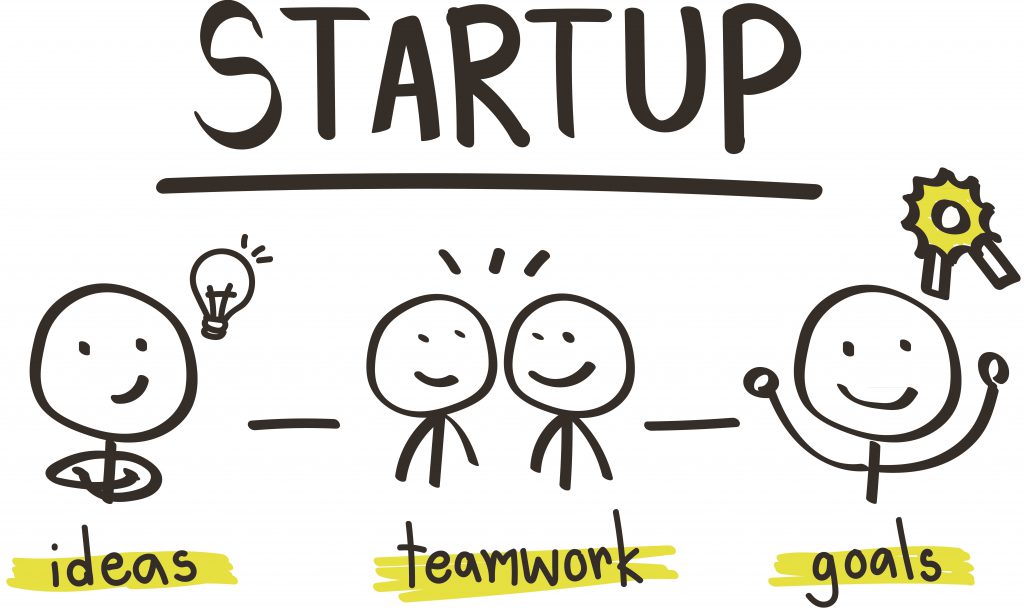We tried to diagnose: what differentiates (risk-capital) startup companies from non-startups? What is that unique startup DNA? What makes startup companies so magical? We analyzed variety of criteria such as: Legal, financial, cultural DNA, manpower, and beyond. Here are our findings!
What is a Startup Company?

The unique characteristics of risk-capital startups
Ideas, Teamwork & Goals!
To learn more about how unique the world of risk-capital startup companies is, check out our article: The Corona Era Startup Survival Guide: From Firing to Funding. 10 Honest Tips from High-Profile Investors
Key Differentiators of Risk Capital Startups
- Risk Capital Funding: early-stage startups are not dependent on revenues to cover their expenses. Rather they are dependent on investors. Such investors trade money for shares in the company, taking a major risk. Investors such as accelerators, angels, super-angels, incubators, micro-VCs, VCs, governmental funds such as incubators or the R&D fund of the chief scientist, are all examples of funding venues, which startups may rely on.
- Unique Products: startups develop and promote their own unique product. This in contrast with distributors, MSSPs or service provides which do not make their own products. Rather they work with products that other organizations invented and developed.
- Responsive & Fast Paste Business Culture: Startups are dynamic and quick to react to the market and its trends. Startups change their offerings, vision, and go-to-market plan rapidly. They easily adapt to changes.
- Disproportionate R&D Budget (see below)
A noticable differentiating factor is the disproportionate R&D budget. Even when early-stage startups raise many millions of dollars, they allocate the vast majority of their budget to R&D. Startups may R&D expenses may outspend even market leaders!
The fact early-stage startups may not be profit-oriented, but rather innovation-centric, gives them an edge. Such a spending mechanism may not make sense for a mature and profitable company.

What Makes Startups So Unique – Distinctive Characteristics (1-5)
- Burn Rate: Startups spend their entire budget within 24 months. By that time, they raise new funds (in exchange for equity). However, the company valuation should be significantly higher than in the previous round. Within 12-16 months, the startup shall achieve a major milestone – the enabler of the next funding round.
- The Startup Goal is either to go public (IPO), sell the company, or be acquired. This is referred to as a liquidity event, or simply as an exit.
- Financial Success is defined as an exit of at least, let’s say, $50M. Depending on the specific investors and company, the bar for success may be an exit as high as hundreds of millions of dollars, the least!
- Profit/Revenues: Until a later stage, startups may focus on growing revenues, rather than on profit. Early revenues demonstrate the business case and execution skills, acting as the enabler for the next funding round.
- Key Startup Stages are known as pre-seed/seed, where the company focus is on R&D and perhaps initial sales. Throughout Round-A the company goal is to generate revenues and establish the sales system; Round-B is all about growth; and Round-C, if applies, is about scaling the company to obtain significant sales and even market leadership.
Startup Distinctive Characteristics (6-10)
- Lifespan of startups is expected to be 5-7 years (or 8-10 including scaling). Though many startups may die earlier on or live longer, those are likely to not achieve the lucrative exit.
- Employees in startups are the center of the company. They develop a sense of mission. They are highly looked at, and at times even influence strategic managerial decisions!
- Options: Startups have a unique financial tool called Employee Startup Stock Options. In short, those are company shares, a mechanism to compensate employees and add to their sense of belonging. However, as we revealed in our previous article, options have higher perceived value than their real one.
- Organizational Structure: early stage startups are highly flexible. They have little to no structure in place.
- Accelerators: Many startups start their journey in an accelerator program such as Y Combinator, 500 Startups, Mass Challenge, etc.
When startup companies grow in size (Round-B/C), they shift toward becoming mature companies, in terms of structures, business goals, and organizational culture. Following Round-B, startups change their cultural DNA from what it used to be. They quickly shift and transition into a workplace of a”regular enterprises”.

Summary: What Makes Startups Unique
In conclusion, early stage startup companies differentiate from other businesses in many ways. First and for most, they are dependent on investor’s funding to survive and grow. Startups usually budget their R&D in a disproportionate manner. This is especially true during the seed stage.
Later on, startups develop a minimal viable product or a prototype. They then improve their market validation. As that milestone is achieved, startups raise additional funding (Seed/round-A) and step up to their next set of goals.
Gradually startups grow into the DNA of mature companies. This transition usually takes place after closing the Round-B funding. The shift reflects in becoming revenue and profit oriented; in having processes in place; in a mature and less employee-centric culture, and beyond.
If you wish to have a deeper dive into the world of startups, check out the following articles:
- How to Win Startup Competitions (Part #1)
- The Startup Survival Guide at the Corona Era: From Firing to Funding
Now share with us: What in your opinion makes startups stand out? Did we miss any major differentiators? Let us know in the comments below!
Thank You!




0 Comments